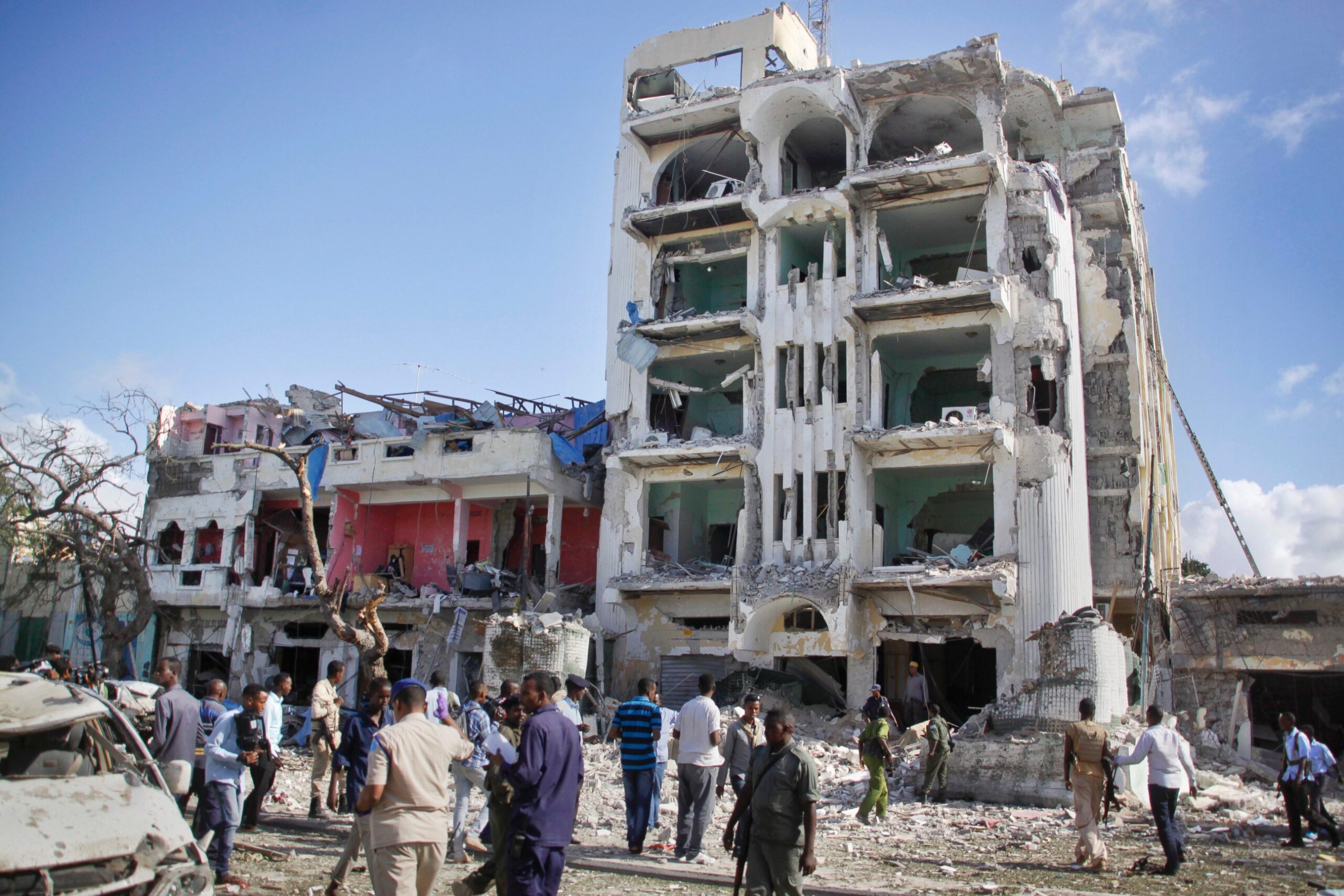As US Secretary of State Hilary Clinton arrives in Nairobi where she is attending a trade conference as part of her Africa tour and is expected to meet with Somali President Ahmed Sheriff- Australian authorities are said successfully foiled a terrorist attack planned by a group allegedly involved with the Al-Shabaab in Melbourne. The Somali conflict is attracting a lot of volunteer fighters across the world. It has come to pass that a young man from Minnesota was killed in Mogadishu and could have been “recruited” at a mosque in that city.
Somalia, it is rightly feared, now symbolizes the fight between Islam and the West, on African territory much in the mould of Afghanistan. Those who wish to contain what has been described as the terrorist infestation want more support for the Transitional Federal Government [TFG] of Somalia and include the United States and several European countries. Support for the TFG is consolidating as seen from Ms Clinton’s meeting with Sheriff and the decision by the Obama administration to ship tens of tons of military equipment, some of which Al-Shabaab militants have reportedly captured, to the Sheriff government. Ironically, by drawing the battle lines so clearly, the US and its regional allies are making Somalia a more attractive destination for radical Islamists around the world.
It also appears that the TFG, even with US-allied military support, will find it difficult if not impossible to establish control over the whole of Somalia even if it survives the present military onslaught on it by Al-Shabaab. A new strategy to turn things around in Somalia is necessary but first the allied action against the Al-Shabaab must not be understood to mean blind, unreserved support for the feeble regime of President Ahmed Sheriff. Decisions about the immediate future of the African Union Peace Keeping Mission in Mogadishu and any interventions to bolster the security capabilities of Sheriff’s government must be based on the painful reality that it is presently on life support.
To this extent one must ask if the TFG is the best option to contain the spread of radicalism in Somalia and beyond. What would be the actual cost of maintaining its thin legitimacy even if it were to win battles today with the help of an offensive African Union force currently seeking an expanded mandate or some other “surge strategy” by its international supporters? So far it appears that support for the TFG has been counterproductive and accelerated radicalism within Somalia and inspired terrorists abroad. What if the allies exited TFG and allowed the Al-Shabaab which is the military authority in most of Somalia to consolidate control? Will a Somalia without the TFG cease to be viable as a strategy for sustainable security and a bulwark against the potential spread of terrorism? Probably not. The best hope of containing the Al-Shabaab in Somalia is to deinternationalise the conflict there by leaving it to Somalis. Removing the TFG from Somalia can lead to some positive scenarios. Firstly it takes away the fundamentalist premise for the fighting. Sheriff himself who pioneered the Al Shabaab movement probably knows that it cannot survive the resurgence of clan identities which would re-emerge as soon as the TFG, a symbol of western meddling, is no longer the enemy. This is not a bad thing.
A Somali political consensus cannot be arrived at under the present matrix where the military contest is based on religious war which obscures the political contest underneath. Secondly a new administration cannot further a religious agenda across Somalia’s borders. If an Al-Shabaab administration attempted to extend its fight into Ethiopia it would surely face an invasion which would only complicate its dispensation. It would also have to re-evaluate its relationship with Eritrea and Kenya [which has a large Somali population].
Thirdly but not least, only if there is a military power with some legitimacy even one drawn from the exit of the TFG can regional bodies like the East African Community, IGAD or even the African Union constructively involve themselves in peace-building. The heirs of the TFG can be tasked to explain what kind of government they intend to run and the region must be willing to together firmly, and with the threat of military force, against any unacceptable agenda’s especially the radical versions of rule that disregard basic human rights. International allies can then weigh in to support tough action when it is clear which direction the new administration wants to go including the full force of sanctions and a blockade of the coastline. An invasion of Somalia in the future by East African countries against a “rogue” state in Somalia as far-fetched as it sounds is still a better proposition than the open-ended support of the TFG.










